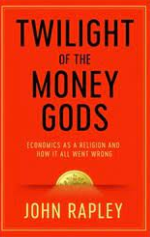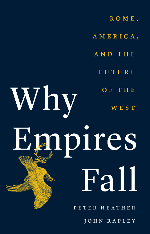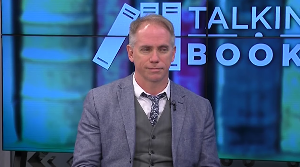John Rapley
Virtual Keynote Speaker
Global Political Economist


John Rapley is a political economist who has lectured to audiences around the world, and whose writing has appeared or been reviewed in the world’s leading publications and been translated into many languages. Born and raised in Canada, he is now based at the University of Cambridge. His talks are immersive experiences that invite audiences to join him on a voyage deep into the global economy, where they spot the emergent trends that will shape our future lives. Blending a narrative, story-telling approach with original scholarship, Rapley entertains as he educates, leavening his presentations with a rich seam of anecdotes drawn from three decades of working on the front-lines of the global economy as an academic, analyst and journalist. His new book Why Empires Fall, described by the Economist as ‘a provocative short book... with a novel twist” has been named one of the best new books of 2023 by the Financial Times, and will be released in North America by Yale University Press in September. A regular contributor to the Globe and Mail, the CBC and the BBC, he has worked in all media (print, television, radio, social media, podcasting) and is equally fluent in French and English.
Speakers Like John Rapley
Speaking Topics
All Empires end; is it now the Turn of the West?
While working in the global periphery at the turn of the millennium, John Rapley began noticing something curious: shock events, like epidemics and financial crashes, that started in developing countries then worked their way into the developed world. When he mentioned this to a former colleague from his Oxford days, the historian Peter Heather said the same had been true of the Roman Empire: that when it built its empire Rome made its history, only to later have its rising periphery determine its fate. Embarking on a detailed comparison, the two uncovered a lifecycle common to empires: that what makes them great ultimately brings them down. Today, after two centuries of extraordinary growth during which they rose to dominate the planet, Western economies have slowed to a crawl. But as Rapley shows in this presentation, while the modern West will continue to decline relative to its former periphery, it need never fall. Indeed, with the right choices, the West could face a future of renewed engagement with the world.
A Quiet Revolution
The thirty years after the end of communism were an era of remarkable stability, featuring steady economic growth across the globe, low inflation and interest rates, and a big increase in the wealth held in stocks, bonds and real estate. Although the pandemic briefly interrupted this, policymakers were confident that as happened after the 2008 financial crisis, things would get quickly back on track. They were wrong. Since the start of the pandemic, John Rapley has been writing for the Globe and Mail about how and why the economy of the future will look very different from that of the past, with higher inflation and interest rates, wages that rise quicker than profits and assets, and major changes in real estate. This presentation will reveal how the focus on short-term factors led policy-makers to overlook what has been a quiet revolution in the world economy – one years in the making, and that is transforming our economy. While the early stages of this transition are proving disruptive, its future course will nonetheless be ripe with opportunities for those willing to seize them.
The wealth trap - can a country get so rich, there's no way left but down?
It's long been known that as an economy gets richer, its growth rate slows. But recent developments in Western economies raise an intriguing, and possibly worrying possibility: that eventually, an economy might grow so rich it crosses the threshold into reversing and getting poorer. Is this the fate that now awaits us? This presentation will explore how the wealth trap works, what makes countries fall into it, and the changes we will need to make if we are to avoid crossing the threshold to decline. The good news for Canadians is that the country has some of the basic conditions needed to avoid falling into the trap, though the risk of complacency is ever present.
The degrowth dilemma - will the climate crisis end economic growth, or will economic growth end the climate crisis?
In theory, new technology can arrest climate change. In practice, it isn't, with global carbon emissions still rising. Partly that’s because poor countries are producing more pollution as their economies catch up to the West. But partly it’s because of a peculiarity in human behaviour – that the more we have, the more we want. Some scholars therefore conclude that we are ultimately doomed to a climate catastrophe because our need to produce less will get overwhelmed by our desire to get more. But more what? The assumption has long been that we seek more material gratification. However, recent research, as well as behavioural changes observed during the pandemic, suggest this isn’t always the case, that humans often seek cultural or spiritual comforts and not just ‘more stuff’. This talk will explore what we are learning about the motives of human behaviour and how, given the choice, we might naturally gravitate towards a more sustainable economy. Although the case for doom may be strong, the case for hope may ultimately be stronger.
Publications by John Rapley

Twilight of the Money Gods

Why Empires Fall
